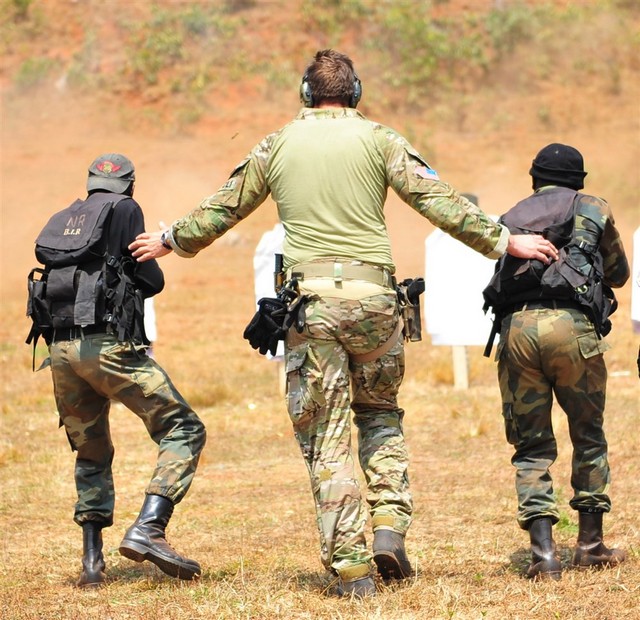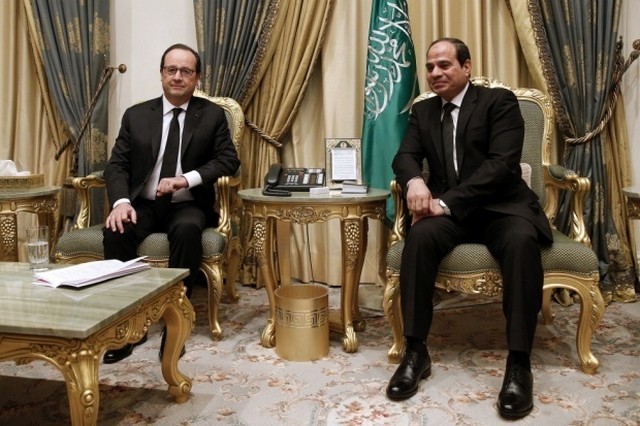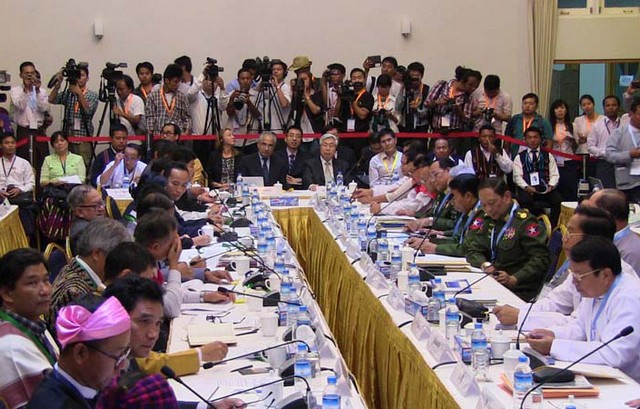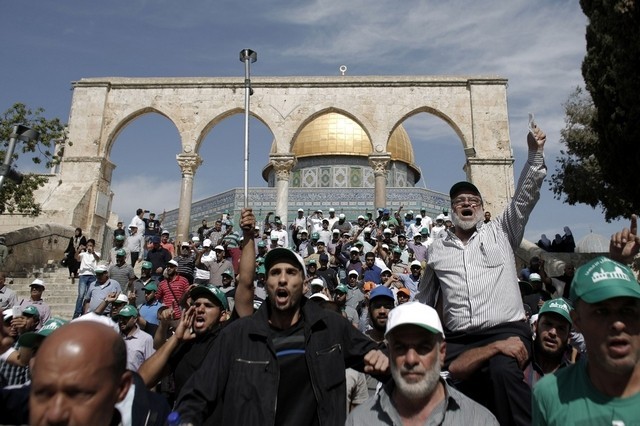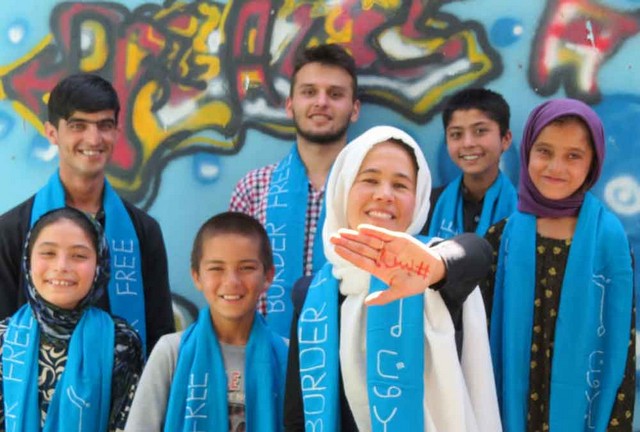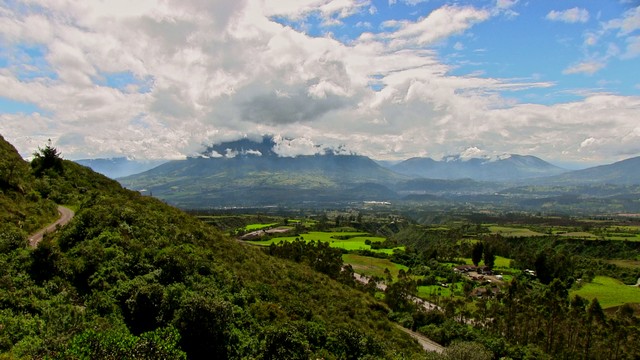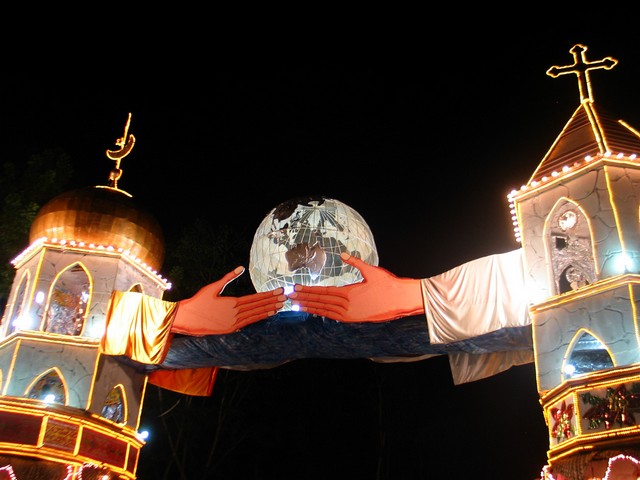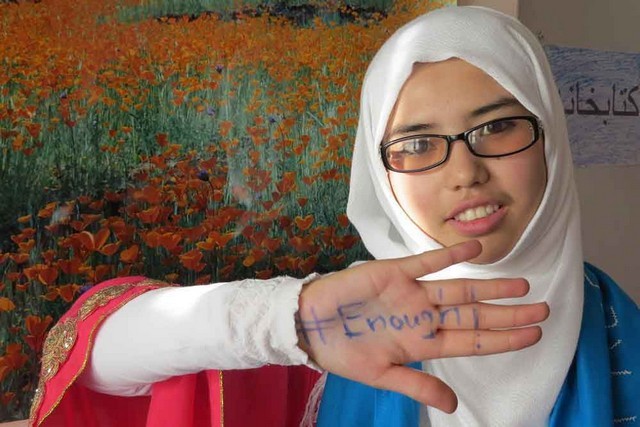By Nick Turse
You can find them in dusty, sunbaked badlands, moist tropical forests, and the salty spray of third-world littorals. Standing in judgement, buffeted by the rotor wash of a helicopter or sweltering beneath the relentless desert sun, theyinstruct, yell, and cajole as skinnier men playact under their watchful eyes. In many places, more than their particular brand of camouflage, better boots, and designer gear sets them apart. Their days are scented by stale sweat and gunpowder; their nights are spent in rustic locales or third-world bars.
These men — and they are mostly men — belong to an exclusive military fraternity that traces its heritage back to the birth of the nation. Typically, they’ve spent the better part of a decade as more conventional soldiers, sailors, marines, or airmen before making the cut. They’ve probably beendeployed overseas four to 10 times. The officers are generally approaching their mid-thirties; the enlisted men, their late twenties. They’ve had more schooling than most in the military. They’re likely to be married with a couple of kids. And day after day, they carry out shadowy missions over much of the planet: sometimes covert raids, more often hush-hush training exercises from Chad to Uganda, Bahrain to Saudi Arabia, Albania to Romania, Bangladesh to Sri Lanka, Belize to Uruguay. They belong to the Special Operations forces (SOF), America’s most elite troops — Army Green Berets and Navy SEALs, among others — and odds are, if you throw a dart at a world map or stop a spinning globe with your index finger and don’t hit water, they’ve been there sometime in 2015.
The Wide World of Special Ops
This year, U.S. Special Operations forces have already deployed to 135 nations, according to Ken McGraw, a spokesman for Special Operations Command (SOCOM). That’s roughly 70% of the countries on the planet. Every day, in fact, America’s most elite troops are carrying out missions in 80 to 90 nations, practicing night raids or sometimes conducting them for real, engaging in sniper training or sometimes actually gunning down enemies from afar. As part of a global engagement strategy of endless hush-hush operations conducted on every continent but Antarctica, they have now eclipsed the number and range of special ops missions undertaken at the height of the conflicts in Iraq and Afghanistan.
In the waning days of the Bush administration, Special Operations forces (SOF) were reportedly deployed in only about 60 nations around the world. By 2010, according to the Washington Post, that number had swelled to 75. Three years later, it had jumped to 134 nations, “slipping” to 133 last year, before reaching a new record of 135 this summer. This 80% increase over the last five years is indicative of SOCOM’s exponential expansion which first shifted into high gear following the 9/11 attacks.
Special Operations Command’s funding, for example, has more than tripled from about $3 billion in 2001 to nearly $10 billion in 2014 “constant dollars,”according to the Government Accountability Office (GAO). And this doesn’t include funding from the various service branches, which SOCOM estimates at around another $8 billion annually, or other undisclosed sums that the GAO was unable to track. The average number of Special Operations forces deployed overseas has nearly tripled during these same years, while SOCOM more than doubled its personnel from about 33,000 in 2001 to nearly 70,000now.
Each day, according to SOCOM commanderGeneral Joseph Votel, approximately 11,000 special operators are deployed or stationed outside the United States with many more on standby, ready to respond in the event of an overseas crisis. “I think a lot of our resources are focused in Iraq and in the Middle East, in Syria for right now. That’s really where our head has been,” Votel told the Aspen Security Forum in July. Still, he insisted his troops were not “doing anything on the ground in Syria” — even if they had carried out a night raid there a couple of months before and it was later revealed that they are involved in a covert campaign of drone strikes in that country.
“I think we are increasing our focus on Eastern Europe at this time,” he added. “At the same time we continue to provide some level of support on South America for Colombia and the other interests that we have down there. And then of course we’re engaged out in the Pacific with a lot of our partners, reassuring them and working those relationships and maintaining our presence out there.”
In reality, the average percentage of Special Operations forces deployed to the Greater Middle East has decreased in recent years. Back in 2006, 85% of special operators were deployed in support of Central Command or CENTCOM, the geographic combatant command (GCC) that oversees operations in the region. By last year, that number had dropped to 69%, according to GAO figures. Over that same span, Northern Command — devoted to homeland defense — held steady at 1%, European Command (EUCOM) doubled its percentage, from 3% to 6%, Pacific Command (PACOM) increased from 7% to 10%, and Southern Command, which overseas Central and South America as well as the Caribbean, inched up from 3% to 4%. The largest increase, however, was in a region conspicuously absent from Votel’s rundown of special ops deployments. In 2006, just 1% of the special operators deployed abroad were sent to Africa Command’s area of operations. Last year, it was 10%.
Globetrotting is SOCOM’s stock in trade and, not coincidentally, it’s divided into a collection of planet-girding “sub-unified commands”: the self-explanatory SOCAFRICA; SOCEUR, the European contingent; SOCCENT, the sub-unified command of CENTCOM; SOCKOR, which is devoted strictly to Korea; SOCPAC, which covers the rest of the Asia-Pacific region; SOCSOUTH, which conducts missions in Central America, South America, and the Caribbean; SOCNORTH, which is devoted to “homeland defense”; and the ever-itinerant Joint Special Operations Command or JSOC, a clandestine sub-command (formerly headed by Votel) made up of personnel from each service branch, including SEALs, Air Force special tactics airmen, and the Army’s Delta Force that specializes in tracking and killing suspected terrorists.
The elite of the elite in the special ops community, JSOC takes on covert, clandestine, and low-visibility operations in the hottest of hot spots. Some covert ops that have come to light in recent years include a host of Delta Force missions: among them, an operation in May in which members of the elite force killed an Islamic State commander known as Abu Sayyaf during a night raid in Syria; the 2014 release of long-time Taliban prisoner Army Sergeant Bowe Bergdahl; the capture of Ahmed Abu Khattala, a suspect in 2012 terror attacks in Benghazi, Libya; and the 2013 abduction of Anas al-Libi, an al-Qaeda militant, off a street in that same country. Similarly, Navy SEALs have, among other operations, carried out successful hostage rescue missions in Afghanistan and Somalia in 2012; a disastrous one in Yemen in 2014; a 2013 kidnap raid in Somalia that went awry; and — that same year — a failed evacuation mission in South Sudan in which three SEALs were wounded when their aircraft was hit by small arms fire.
SOCOM’s SOF Alphabet Soup
Most deployments have, however, been training missions designed to tutor proxies and forge stronger ties with allies. “Special Operations forces provide individual-level training, unit-level training, and formal classroom training,” explains SOCOM’s Ken McGraw. “Individual training can be in subjects like basic rifle marksmanship, land navigation, airborne operations, and first aid. They provide unit-level training in subjects like small unit tactics, counterterrorism operations and maritime operations. SOF can also provide formal classroom training in subjects like the military decision-making process or staff planning.”
From 2012 to 2014, for instance, Special Operations forces carried out 500 Joint Combined Exchange Training (JCET) missions in as many as 67 countries each year. JCETs are officially devoted to training U.S. forces, but they nonetheless serve as a key facet of SOCOM’s global engagement strategy. The missions “foster key military partnerships with foreign militaries, enhance partner-nations’ capability to provide for their own defense, and build interoperability between U.S. SOF and partner-nation forces,” according to SOCOM’s McGraw.
And JCETs are just a fraction of the story. SOCOM carries out many other multinational overseas training operations. According to data from the Office of the Under Secretary of Defense (Comptroller), for example, Special Operations forces conducted 75 training exercises in 30 countries in 2014. The numbers were projected to jump to 98 exercises in 34 countries by the end of this year.
“SOCOM places a premium on international partnerships and building their capacity. Today, SOCOM has persistent partnerships with about 60 countries through our Special Operations Forces Liaison Elements and Joint Planning and Advisory Teams,” said SOCOM’s Votel at a conference earlier this year, drawing attention to two of the many types of shadowy Special Ops entities that operate overseas. These SOFLEs and JPATs belong to a mind-bending alphabet soup of special ops entities operating around the globe, a jumble of opaque acronyms and stilted abbreviations masking a secret world of clandestine efforts often conducted in the shadows in impoverished lands ruled by problematic regimes. The proliferation of this bewildering SOCOM shorthand — SOJTFs and CJSOTFs, SOCCEs and SOLEs — mirrors the relentless expansion of the command, with its signature brand of military speak or milspeak proving as indecipherable to most Americans as its missions are secret from them.
Around the world, you can find Special Operations Joint Task Forces (SOJTFs), Combined Joint Special Operations Task Forces (CJSOTFs), and Joint Special Operations Task Forces (JSOTFs), Theater Special Operations Commands (TSOCs), as well as Special Operations Command and Control Elements (SOCCEs) and Special Operations Liaison Elements (SOLEs). And that list doesn’t even include Special Operations Command Forward (SOC FWD) elements — small teams which, according to the military, “shape and coordinate special operations forces security cooperation and engagement in support of theater special operations command, geographic combatant command, and country team goals and objectives.”
Special Operations Command will not divulge the locations or even a simple count of its SOC FWDs for “security reasons.” When asked how releasing only the number could imperil security, SOCOM’s Ken McGraw was typically opaque. “The information is classified,” he responded. “I am not the classification authority for that information so I do not know the specifics of why the information is classified.” Open source data suggests, however, that they are clustered in favored black ops stomping grounds, including SOC FWD Pakistan, SOC FWD Yemen, and SOC FWD Lebanon, as well as SOC FWD East Africa, SOC FWD Central Africa, and SOC FWD West Africa.
What’s clear is that SOCOM prefers to operate in the shadows while its personnel and missions expand globally to little notice or attention. “The key thing that SOCOM brings to the table is that we are — we think of ourselves — as a global force. We support the geographic combatant commanders, but we are not bound by the artificial boundaries that normally define the regional areas in which they operate. So what we try to do is we try to operate across those boundaries,” SOCOM’s Votel told the Aspen Security Forum.
In one particular blurring of boundaries, Special Operations liaison officers (SOLOs) are embedded in at least 14 key U.S. embassies to assist in advising the special forces of various allied nations. Already operating in Australia, Brazil, Canada, Colombia, El Salvador, France, Israel, Italy, Jordan, Kenya, Poland, Peru, Turkey, and the United Kingdom, the SOLO program is poised, according to Votel, to expand to 40 countries by 2019. The command, and especially JSOC, has also forged close ties with the Central Intelligence Agency, the Federal Bureau of Investigation, and the National Security Agency, among other outfits, through the use of liaison officers and Special Operations Support Teams (SOSTs).
“In today’s environment, our effectiveness is directly tied to our ability to operate with domestic and international partners. We, as a joint force, must continue to institutionalize interoperability, integration, and interdependence between conventional forces and special operations forces through doctrine, training, and operational deployments,” Votel told the Senate Armed Services Committee this spring. “From working with indigenous forces and local governments to improve local security, to high-risk counterterrorism operations — SOF are in vital roles performing essential tasks.”
SOCOM will not name the 135 countries in which America’s most elite forces were deployed this year, let alone disclose the nature of those operations. Most were, undoubtedly, training efforts. Documents obtained from the Pentagon via the Freedom of Information Act outlining Joint Combined Exchange Training in 2013 offer an indication of what Special Operations forces do on a daily basis and also what skills are deemed necessary for their real-world missions: combat marksmanship, patrolling, weapons training, small unit tactics, special operations in urban terrain, close quarters combat, advanced marksmanship, sniper employment, long-range shooting, deliberate attack, and heavy weapons employment, in addition to combat casualty care, human rights awareness, land navigation, and mission planning, among others.
From Joint Special Operations Task Force-Juniper Shield, which operates in Africa’s Trans-Sahara region, and Special Operations Command and Control Element-Horn of Africa, to Army Special Operations Forces Liaison Element-Korea and Combined Joint Special Operations Task Force-Arabian Peninsula, the global growth of SOF missions has been breathtaking. SEALs or Green Berets, Delta Force operators or Air Commandos, they are constantly taking on what Votel likes to call the “nation’s most complex, demanding, and high-risk challenges.”
These forces carry out operations almost entirely unknown to the American taxpayers who fund them, operations conducted far from the scrutiny of the media or meaningful outside oversight of any kind. Everyday, in around 80 or more countries that Special Operations Command will not name, they undertake missions the command refuses to talk about. They exist in a secret world of obtuse acronyms and shadowy efforts, of mystery missions kept secret from the American public, not to mention most of the citizens of the 135 nations where they’ve been deployed this year.
This summer, when Votel commented that more special ops troops are deployed to more locations and are conducting more operations than at the height of the Afghan and Iraq wars, he drew attention to two conflicts in which those forces played major roles that have not turned out well for the United States. Consider that symbolic of what the bulking up of his command has meant in these years.
“Ultimately, the best indicator of our success will be the success of the [geographic combatant commands],” says the special ops chief, but with U.S.setbacks in Africa Command’s area of operations from Mali and Nigeria toBurkina Faso and Cameroon; in Central Command’s bailiwick from Iraq andAfghanistan to Yemen and Syria; in the PACOM region vis-à-vis China; and perhaps even in the EUCOM area of operations due to Russia, it’s far from clear what successes can be attributed to the ever-expanding secret operations of America’s secret military. The special ops commander seems resigned to the very real limitations of what his secretive but much-ballyhooed, highly-trained, well-funded, heavily-armed operators can do.
“We can buy space, we can buy time,” says Votel, stressing that SOCOM can “play a very, very key role” in countering “violent extremism,” but only up to a point — and that point seems to fall strikingly short of anything resembling victory or even significant foreign policy success. “Ultimately, you know, problems like we see in Iraq and Syria,” he says, “aren’t going to be resolved by us.”
Nick Turse is the managing editor of TomDispatch.com and a fellow at the Nation Institute. A 2014 Izzy Award and American Book Award winner for his book Kill Anything That Moves, he has reported from the Middle East, Southeast Asia, and Africa and his pieces have appeared in the New York Times, the Intercept, the San Francisco Chronicle, the Nation, and regularlyat TomDispatch. His latest book is Tomorrow’s Battlefield: U.S. Proxy Wars and Secret Ops in Africa.
Copyright 2015 Nick Turse
24 September, 2015
TomDispatch.com

